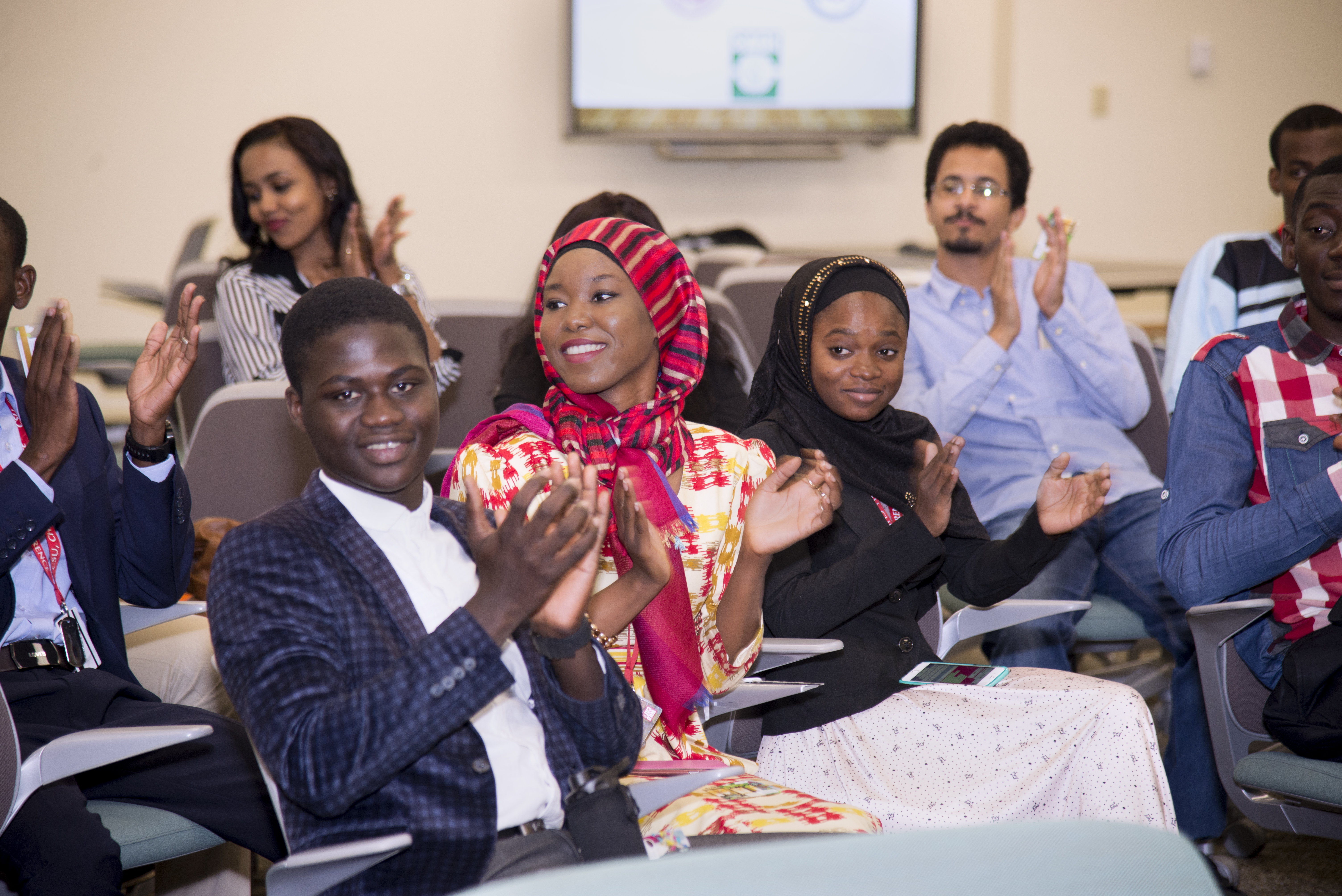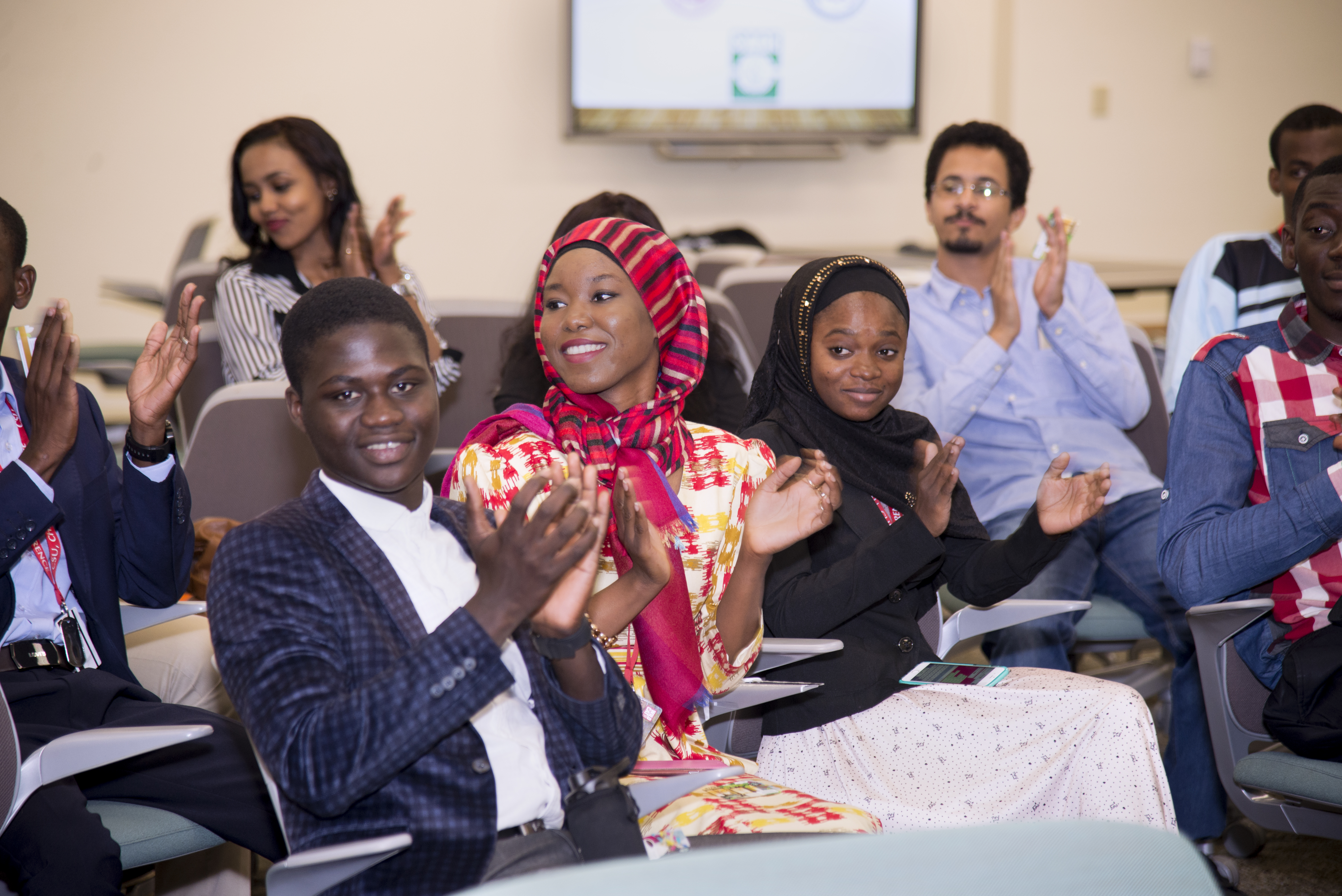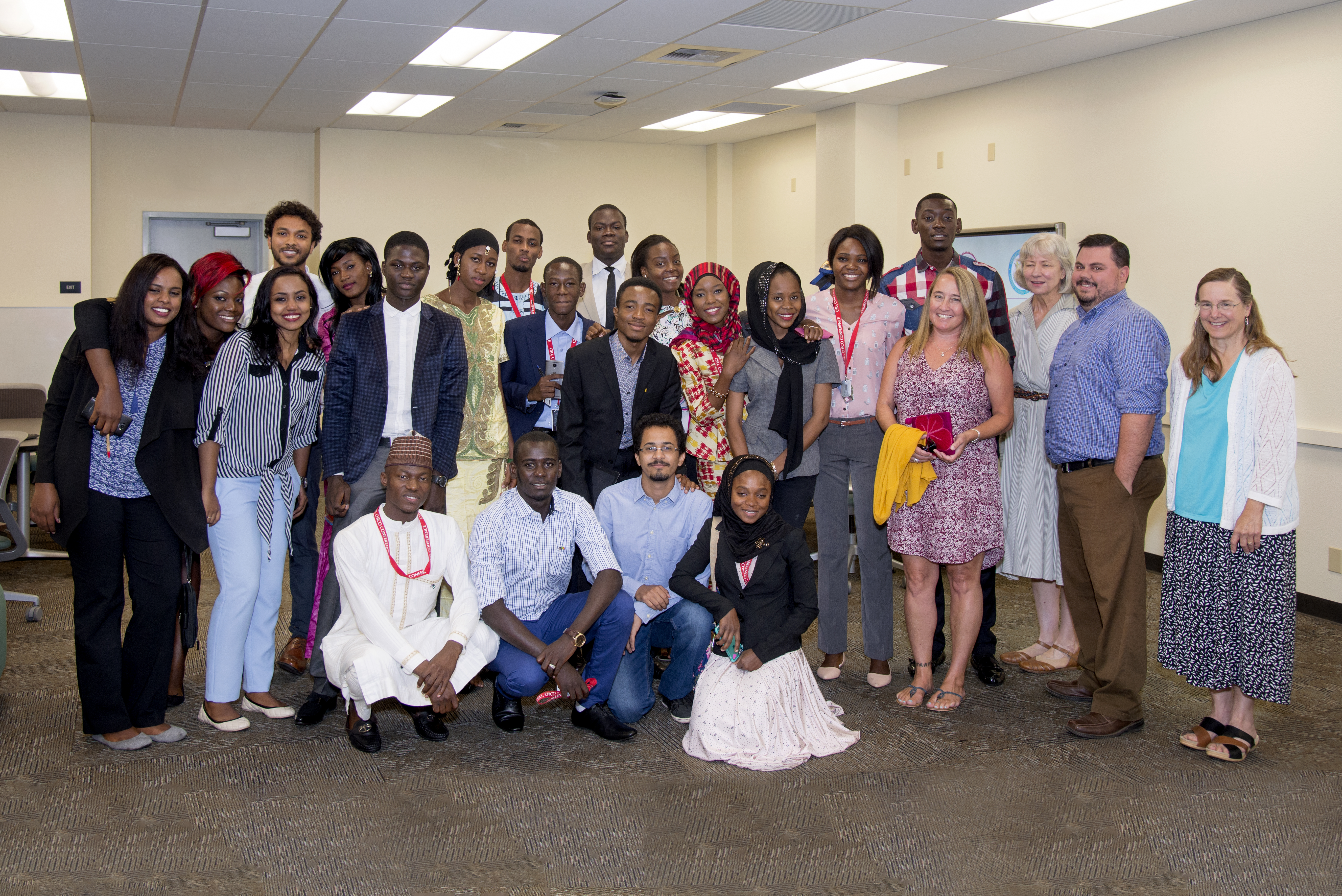Student Entrepreneurs Envision Changing Their World

The Entrepreneurship Boot Camp’s final presentation for students from Africa in Tehama room 116 on Monday, August 1, 2016 (Jessica Bartlett/Student Photographer)
For nearly a month, college students hailing from five African nations got a taste of what it takes to start businesses designed to solve society’s ills.
The strategy is known as social entrepreneurship, and it’s the focus of a new leadership program that launched at Chico State’s College of Business this summer, in partnership with the University’s Office of International Education.
The students—hailing from Cameroon, Mali, Nigeria, Senegal, and Sudan—are the first to arrive at Chico State through the three-year Study of the US Institute for Student Leaders (SUSI) program, which is funded by the US Department of State’s Bureau of Education and Cultural Affairs.
Under the guidance of business school faculty and staff, the 20 students poured over operations, finance, marketing, leadership, and presentation skills. Working in seven teams, the students also devised socially-minded businesses.
One group focused on getting more homeless children in school with money raised through a network of fish and vegetable farms whose sales could pay education-related fees. Another group proposed a business to help women recognize breast cancer’s early warning signs.
“All of these kids have ideas on how they want to change certain circumstances in their worlds,” said Colleen Robb, an assistant professor of entrepreneurship at Chico State who taught in the leadership program.
She called the youthful crop of aspiring innovators “probably the most driven students that I’ve ever met. They see things in the world that aren’t right, and they want to do something about it, rather than just complain about it. That’s the kind of optimism and drive that just inspires you right back.”

Socially-minded enterprise has Sudanese college student Moneera Yassien hooked. She and her business plan team want to give unemployed women jobs as seamstresses making formalwear to be sold online.
Last week, Yassien took to Twitter to conduct a poll on whether their idea was viable. Some 66 percent of respondents said yes.
Her passion for entrepreneurship made her a bit of an outlier in her home country, however, as Sudan remains gripped by social conflict and poverty. “In my country, the entrepreneurial way of thinking is not very common,” explained Yassien, a junior who’s studying economics and social studies at the University of Khartoum. “People want to go to school, graduate, and start working for a job. No one thinks of having their own business.”
But after landing at Chico State’s SUSI program earlier this summer, Yassien said she was thrilled to find a community where “everyone is entrepreneurial in some way and many people are aiming to have their own business.”
She first became intrigued with the promise of social entrepreneurship through her involvement with Sudan’s Innovation and Entrepreneurship Community. That nonprofit founded in 2013 provides training, mentorship, and financial support to Sudanese entrepreneurs.
The group’s approach sparked an “aha” moment for Yassien, who realized that by creating businesses that forge solutions for social problems while making money at the same time, “you are not just making a profit; you are part of the change the world is aiming to have.”
She rolled that enthusiasm for social enterprise into her application for the SUSI program.
“I had a good background about entrepreneurship and I knew how to tell what I’m passionate about—women’s empowerment and economic development,” she said.

Sani Muhammad, a senior who’s studying sociology at Bayero University Kano in northern Nigeria, also sees setting up a clothing business as a winning strategy to help advance women in his country.
He highlighted a program field trip to Lulus.com to chat with one of the company’s founders. The multimillion-dollar online clothing retailer started in 1996 with just a $10,000 investment from a mother-daughter team led by Debra Cannon (BA, ’77, American Studies).
Still operating in Chico where it employs more than 100, Lulus.com “is a very good model for startups like us,” Muhammad said. “It’s a very inspiring story.”
His own startup would employ rural Nigerian women to produce traditional African clothing and pay them a percentage of sales, with Muhammad’s company handling marketing for the fashion line. Creating earning power for the women could help change expectations for men to be the sole family breadwinner, he said.
The fashion venture would also fund a foundation to educate children and youths about respecting women, which Muhammad says could ultimately lessen incidents of domestic violence.
“If you can inculcate good values of respecting the woman, understanding the woman . . . I believe the children will grow up to respect women and not hit women. So our focus will be on children and schools,” Muhammad said.
As he refined his business idea, Chico State’s professors were always ready to listen, Muhammad said.
“The attitudes of the professors, the way they engage their students, is very fun,” said Muhammad. “You can open up your problems to them and they will treat (them) in such a way that they respect your values and respect your opinions.”
Peter Straus, director of the Center for Entrepreneurship, said he emphasized to students the hurdles they will inevitably face, including raising startup cash and facing off with competitors eager to swipe their business ideas. “The impression I made is that this work is awfully hard,” he said.
However, Straus added, “I can without a doubt tell you that these people will make a difference, and they will use some of the tools they got here in Chico.”


